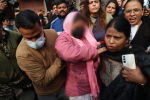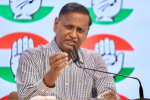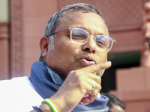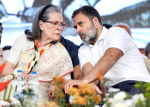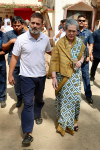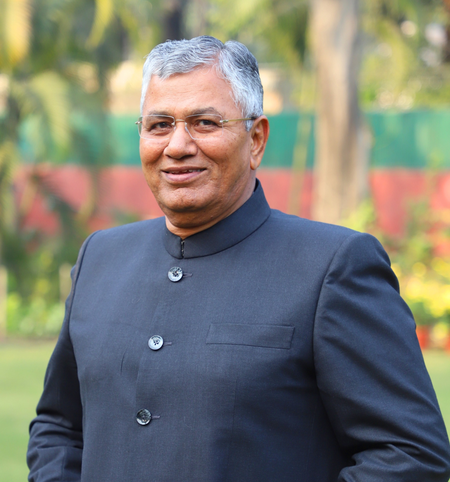
New Delhi: In a significant development, the Joint Parliamentary Committee (JPC) on “One Nation, One Election” on Tuesday convened with two legal luminaries — former Chief Justice of India, Ranjan Gogoi and former Chief Justice of the Delhi High Court Rajendra Menon — delivering in-depth presentations.
Chairman P.P. Chaudhary expressed satisfaction with the active participation of Members of Parliament from across party lines, who raised numerous questions during the session.
He emphasised that the JPC is operating in the national interest, transcending political affiliations to ensure a balanced and informed discussion.
All concerns raised by members are being systematically addressed.
Looking ahead, the committee plans to invite additional experts to provide further insights on the subject.
To foster public engagement, advertisements will soon be published in various newspapers and media outlets, inviting citizens to share their opinions on the “One Nation, One Election” initiative.
These advertisements will feature a QR code, enabling direct access to the official website for submitting feedback.
The next committee meeting is scheduled for March 17.
Additionally, a dedicated website will be launched to facilitate broader public participation, allowing both stakeholders and the general public to contribute their views on this critical national issue.
Chaudhary, the chairman of Joint Parliamentary Committee (JPC) on ONOE earlier on Tuesday explained, how the ‘poll model’ would enable elected representatives to focus on governance for their entire five-year term, benefitting the nation immensely.
A meeting of the JPC on ONOE was held last week, where all the members displayed a ‘positive attitude’. The Constitution Amendment Bill on ONOE, currently under review by the JPC, seeks to synchronise Lok Sabha and state assembly elections, streamlining the electoral process.
The JPC, chaired by BJP’s P.P. Chaudhary, comprises 39 members, including 27 from the Lok Sabha and 12 from the Rajya Sabha.
In a special interaction with IANS, Chaudhary spoke about the sweeping changes that the bill could bring in Indian political landscape and also hoped that Opposition will not oppose the bill, just for the sake of opposing it.
“Today’s meeting is not about strategy formation. It will be more of a presentation and interaction session. Former Chief Justice Ranjan Gogoi will also be present, and there will be an interaction with him. Former Chief Justice of the Delhi High Court, Rajendra Menon, will also be there, and we will have discussions with him as well,” he said.
Addressing concerns about logistical challenges, Chaudhary pointed out that from 1952 to 1967, elections were conducted simultaneously across the country despite the absence of modern resources such as EVMs, VVPATs, and advanced technology.
“At that time, we didn’t even have the resources we have today. There were no EVMs, no VVPAT, and no advanced systems or technology. Even then, elections were conducted together across the country. Now, we have progressed a lot, and today, India is the third-largest economy in the world. So, we can say that it is not impossible for us,” he said.
“Our official witnesses from the Election Commission, and IT ministries, we will call them and those related to technology, and they will tell us how it can be done simultaneously. In today’s time, in this technological age, it is not a difficult task to gather all the election resources at once,” he further mentioned.
Highlighting the potential benefits of ONOE, Chaudhary claimed that the synchronisation of elections would result in considerable savings, both direct and indirect which will “greatly benefit” India.
“Once synchronisation happens, the direct benefit and indirect benefit, if we look at the direct and indirect benefits, are immense, a lot. The direct benefit is that thousands of crores of rupees are spent; that will be saved. Indirect profit of around 1.6 per cent in the GDP will happen,” he explained.
Responding to the Congress party’s consistent opposition to the proposal, Chaudhary stated, “I believe that if someone is opposing just for the sake of opposition, then it is not right. But if someone really feels that something is not right, we will also correct that thing. But after it is corrected, if there is only opposition, then we do not have any remedy for that. However, I still believe that those who are opposing will be with us wholeheartedly.”
He added that many Congress leaders have privately expressed concerns about the disruptions caused by frequent elections.
“The entire time of politicians is not spent on the work for which they are elected by the people. Instead of focusing on making laws and serving the people for the entire five years, the parties get busy in elections. So the right work that should be done in a democracy does not happen,” he said.
Confident about achieving consensus, Chaudhary insisted that ONOE would not only benefit India but could also set an example for other democracies worldwide.
“We will arrive at a consensus, and there is no doubt about it, and ‘One Nation, One Election’ is for the benefit of the country. It is beneficial to take the country’s economy to the third position and to move further from the third position.”
“And once India does it, I believe that other mature democracies of the world will also see it and after seeing it will try to adopt it in other places as well because they believe that India is such a big democracy, there are so many voters, and if they can conduct an ONOE successfully, then why cannot other democracies of the world do it?” he added.
IANS



